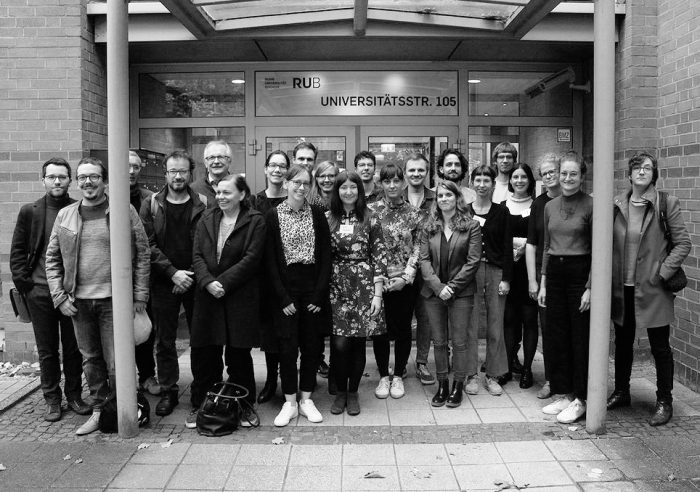Documentary Practices. Excess and Privation
DFG Research Training Group 2132

The graduate research training group on Documentary Practices: Excess and Privation at the Ruhr University of Bochum examines the theory and history of documentary forms from the emergence of analog technology media in the 19th century to the digital media practices of the present. The focus is on the question of what operations invest documentary forms with their specific authority and by way of what procedures is it possible to challenge their claim to representing reality. From a praxeological perspective, what is brought into view are, above all, the concrete actions that assemble the respective visual, textual, and audio media elements and materials into a particular documentary form, in order to orient the readability, the expressive value and the power effect of that which is documented.
Outstanding doctoral students investigate how literature, photography, film, and digital media succeed in rising to the status of documentary media of reference and, at the same time, how this documentary claim to grasping reality gets undermined and called into question. Two concepts are opposed in these efforts: Documentary practices 2.0, in the form of the social media practices by way of which people comprehensively document their everyday life, and 2nd order documentation, which could also be called reflexive documentation. Documentary excess encounters forms and modes of documentary withholding, which reveal the inevitable selectivity of all documentation: its blind spots, but also its experimental forms and its artistic forms of alienation. Investigation of this relation of tension takes place in four work areas: “The Formal History and Theorisation of Documentary Practices”, “Media Poetics of Documentary Practice”, “Self-Documentation and Cultures of Affect”, and “Techno-Politics of Documentary Practice”.
The research group began its work on 1 October 2016. 24 places for doctoral students were filled since then, as well as two post-doctoral positions. Other doctoral students are, moreover, associated with the group, provided they have financing from other sources. Particularly qualified masters students are also included in the group. The international partners of the research group include Northwestern University, Chicago, Keio University Tokyo, Princeton University and New York University.
